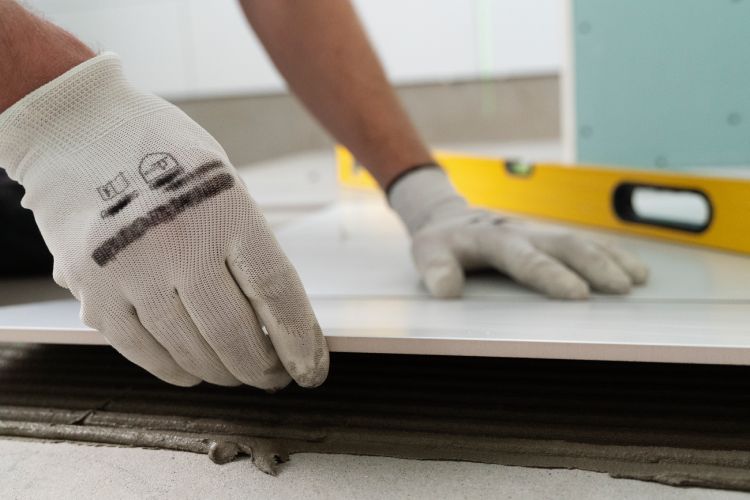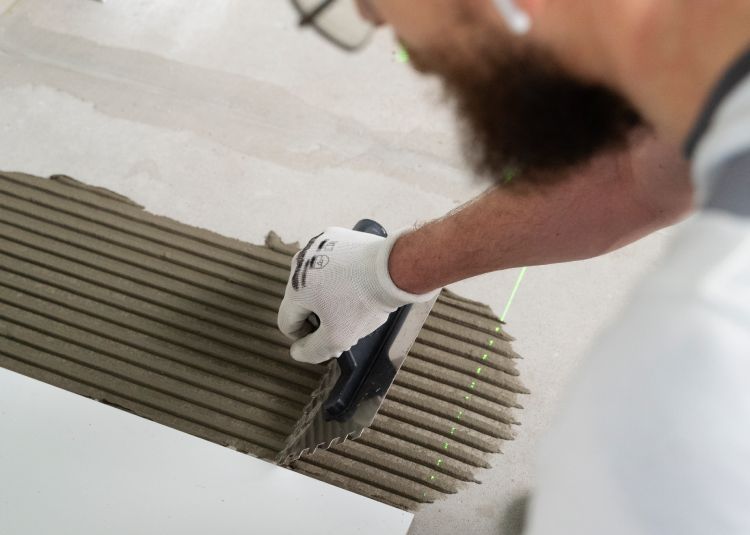 Tiles are an excellent solution for homeowners seeking versatility for their floors, countertops, and walls. Aside from its durability and affordability, this material comes in different shapes and colours, depending on your house’s overall aesthetics.
Tiles are an excellent solution for homeowners seeking versatility for their floors, countertops, and walls. Aside from its durability and affordability, this material comes in different shapes and colours, depending on your house’s overall aesthetics.
Before hiring tiling services, it is important that you ask the right questions to get all the information you need for finalising your design or preparing your budget.
Here are the commonly asked questions plus answers about tiling services to help you make informed decisions:
1. What size of tile should I use?
Many homeowners are often confused about the size of the tile they should use. But the answer is pretty simple here—the size of tile pieces to use will largely depend on the size of the room or the area you are tiling. The tiles’ pattern is also an important factor to consider in achieving the results you want.
As a general rule, larger tiles look better in larger spaces, and smaller tiles are best for intricate flooring patterns. If you avail of our tiling services, we can assess the overall area proportion and recommend the best tile size for your room.
2. What is the difference between ceramic and porcelain tiles?
Ceramic and porcelain tiles are the two popular options for flooring and wall coverings. The materials used for ceramic production are clay and other natural minerals. On the other hand, porcelain is made of dense natural clay, making it more durable and less porous than the former. Porcelain tiles are also more resistant to moisture, scratches, and stains.
3. Is it possible for me to accurately count how many tile pieces I need?
With our team of experienced tiling professionals, we can provide you with an accurate estimate of the number of tile pieces necessary for the project. But if you want to learn the numbers beforehand, you can do it by measuring the area’s dimensions and identifying the size of the tile you’re going to use.
Nevertheless, it is best to purchase extra tiles for cuttings and unforeseen breakages and mistakes during tiling installation. You can also use these pieces in the future should you need to replace a tile or two.
4. Can I place floor tiles on walls and vice versa?
You can. However, you must bear in mind that floor tiles have more weight than wall tiles because of their thickness. Therefore, you need to make sure that the walls are durable enough to support the tiles’ weight.
Then again, we don’t recommend using wall tiles for the floor because they are usually more slippery and may not survive heavy foot traffic.
You must also take into account the adhesives to use and surface preparation processes to follow for floor or wall tiling, as they may differ.
5. Why do I need to hire a tile installation professional?
If you need tile installation in Brisbane and Gold Coast, Superior Waterproofing is your answer.
Hiring a professional tile setter will guarantee that you will get outstanding results because these people already have the expertise and experience needed for the project. They also know the right materials, equipment, and tools specific to your needs for more efficient project completion.
Additionally, getting the services of these professionals will help you save money in the long run as they bring high-quality results that will last for years. This way, you won’t have to worry about costly repairs or replacements because of sudden damage.
6. What grout colour should I use?
In tiling, grout is a paste-like fluid used to fill gaps between tile pieces. Grouts aren’t invisible when applied, which is why it is essential to choose the right colour for your design. And this will depend on your personal preferences.
If you’re buying the grout yourself, you can bring a sample piece of tile and hold it beside the grout’s packaging where it shows the colour. In doing so, you can have a clearer picture of how the two will blend or complement each other.
You can choose a colour that will make your tiles stand out or a shade that will blend with it.
7. What type of tiles should I use in a room exposed to water?
Rooms where there is constant exposure to water, such as bathrooms or shower rooms, need tiles with texture. Without it, the floors will be too slippery and may cause injuries.
8. Is it good to place tile pieces above existing tiles?
Installing tiles above existing tiles or overlaying is possible in specific situations, but it wouldn’t be a wise choice. When you opt to do this type of tile installation, you will need to assess the condition of the existing surface, its weight-bearing capacity, and its suitability.
The existing tiles must be free from damage and properly cleaned before putting the new layer on top of them. When doing this, you must also remember that there may be a noticeable difference in the height of the room. It will also affect the door’s movement.
 Questions You Could Ask Waterproofing Contractors
Questions You Could Ask Waterproofing Contractors
Below, we have listed some important questions you can ask companies offering tiling services. You can use these to decide whether you should avail of their services or not.
- Do you have licenses/certifications?
- What is your estimated turnaround time?
- How long have you been in the industry?
- Do you offer free quotations or estimates?
- What other waterproofing solutions do you offer?
Call Superior Waterproofing for More Answers!
If you’ve got more questions about tiling services that we haven’t included on our list, feel free to message us through our Contact Page. You may also refer to our website to learn more about our services.
 Questions You Could Ask Waterproofing Contractors
Questions You Could Ask Waterproofing Contractors